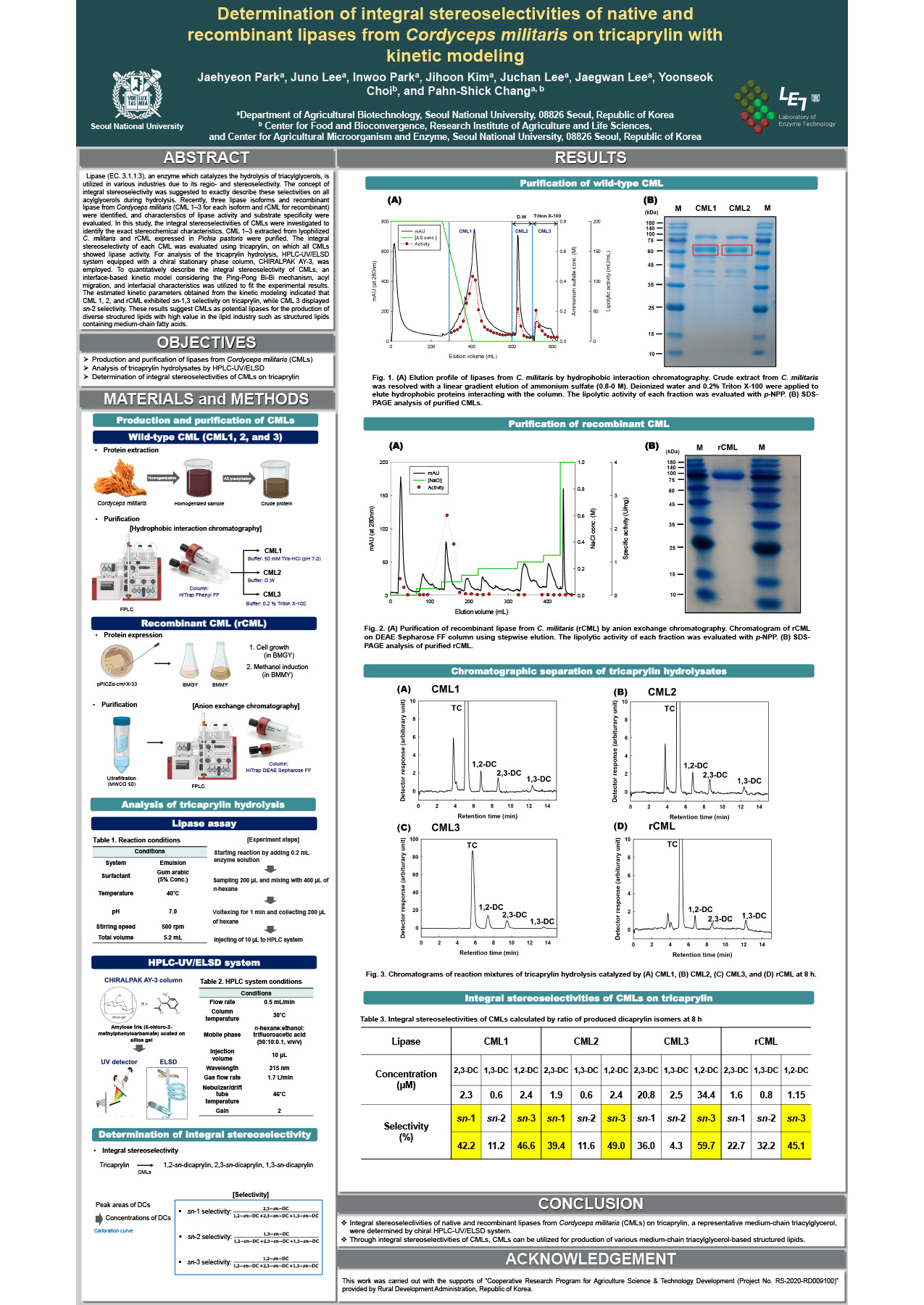Lipase (EC. 3.1.1.3), an enzyme which catalyzes the hydrolysis of triacylglycerols, is utilized in various industries due to its regio- and stereoselectivity. The concept of integral stereoselectivity was suggested to exactly describe these selectivities on all acylglycerols during hydrolysis. Recently, three lipase isoforms and recombinant lipase from Cordyceps militaris (CML 1–3 for each isoform and rCML for recombinant) were identified, and characteristics of lipase activity and substrate specificity were evaluated. In this study, the integral stereoselectivities of CMLs were investigated to identify the exact stereochemical characteristics. CML 1–3 extracted from lyophilized C. militaris and rCML expressed in Pichia pastoris were purified. The integral stereoselectivity of each CML was evaluated using tricaprylin, on which all CMLs showed lipase activity. For analysis of the tricaprylin hydrolysis, HPLC-UV/ELSD system equipped with a chiral stationary phase column, CHIRALPAK AY-3, was employed. To quantitatively describe the integral stereoselectivity of CMLs, an interface-based kinetic model considering the Ping-Pong Bi-Bi mechanism, acyl migration, and interfacial characteristics was utilized to fit the experimental results. The estimated kinetic parameters obtained from the kinetic modeling indicated that CML 1, 2, and rCML exhibited sn-1,3 selectivity on tricaprylin, while CML 3 displayed sn-2 selectivity. These results suggest CMLs as potential lipases for the production of diverse structured lipids with high value in the lipid industry such as structured lipids containing medium-chain fatty acids.
